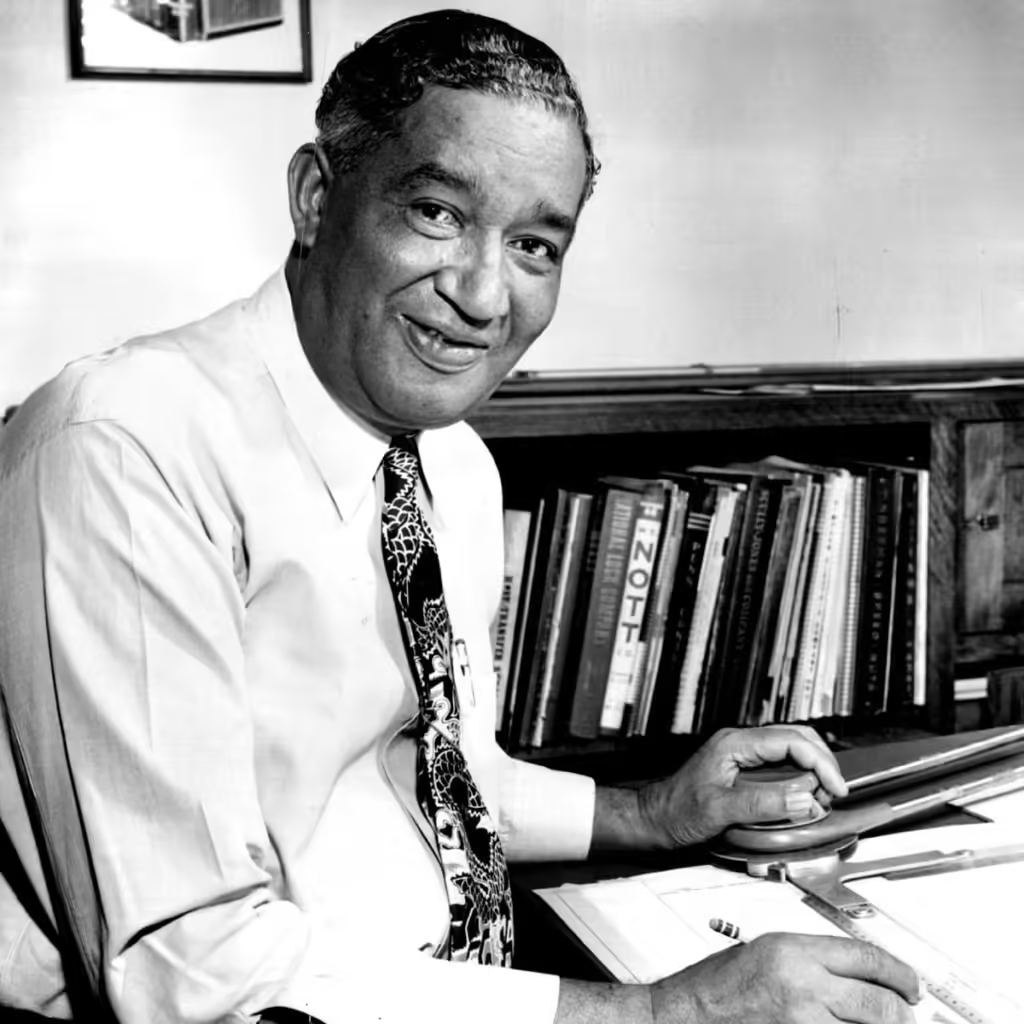
Table of Contents
Frederick McKinley Jones: Innovator and Inventor
Frederick McKinley Jones, often hailed as the “King of Cool,” revolutionized the field of portable refrigeration. His pioneering work in this area earned him widespread recognition, and he went on to become one of the most accomplished Black inventors of the 20th century. Over the course of his life, Jones secured more than 60 patents for a wide range of devices, including refrigeration, sound, and automobile technologies. His most notable achievement was the development of portable refrigeration units, which played a critical role during World War II by enabling the U.S. military to transport food, medicine, and blood. In partnership with a business associate, Jones co-founded a company that would eventually become known as Thermo King. He passed away in February 1961 at the age of 67, leaving behind a lasting legacy in the field of invention and technology.
Early Life
Born on May 17, 1893, in Cincinnati, Ohio, Frederick McKinley Jones faced numerous hardships from a young age. His father, a white man, and his mother, a Black woman, had a troubled relationship, and his mother abandoned him when he was still a child. With his father unable to care for him, Jones was sent to live with a priest in Kentucky at the age of 7. Unfortunately, his father passed away while Jones was under the priest’s care. At the age of 11, with minimal formal education, Jones ran away to live independently, eventually returning to Cincinnati where he worked a variety of odd jobs. One of these jobs included working as a janitor in a garage, where he discovered his aptitude for mechanics. His talent was so evident that he soon became the foreman of the garage. However, his passion for racing cars led to his dismissal after he was caught racing on company time.
Following this, Jones moved from one job to another, gaining valuable experience in a wide range of fields. In 1912, he relocated to Hallock, Minnesota, where he found work as a mechanic on a farm.
World War I Service
Jones’s mechanical skills continued to develop through self-education, as he spent his spare time reading extensively on engineering and electronics. By the age of 20, he had earned an engineering license in Minnesota. His expertise proved invaluable during his service in World War I, where he was drafted into the U.S. Army. Initially assigned to an all-Black unit in France, Jones’s mechanical talents quickly caught the attention of his superiors. Promoted to sergeant, he served as an electrician, wiring telephones and telegraphs, repairing X-ray machines, and maintaining other critical equipment. Jones also took on the role of teaching electrical circuitry to fellow soldiers.
After the war, he returned to Minnesota, where he continued his studies in electronics, setting the stage for his future accomplishments as an inventor.
Frederick McKinley Jones’ Inventions and Contributions
Frederick McKinley Jones was a pioneering inventor, best known for his contributions to refrigeration technologies, sound equipment, and film industry innovations. One of his early achievements was designing a transmitter for a radio station in Hallock, Minnesota, which allowed it to broadcast its programming. In addition, Jones developed a device to synchronize sound with moving pictures, which was a significant advancement for the film industry. He was later hired by local businessman Joseph A. Numero to enhance the sound equipment used in films.
In 1939, Jones received his first patent for a machine that dispensed tickets and change at movie box offices, further demonstrating his inventive abilities. Over the course of his career, he was awarded more than 60 patents, primarily related to refrigeration technologies, but also in areas such as portable X-ray machines, engines, and sound equipment. Notably, in 1960, he received a patent for a thermostat and temperature control system, reflecting his ongoing innovations.
Personal Life
Frederick McKinley Jones was married to Lucille Jones, although details about their relationship remain limited, including the date of their wedding. The couple did not have children, and after Frederick’s passing, Lucille became a widow.
Death and Posthumous Honors
Jones passed away from lung cancer in Minneapolis on February 21, 1961, at the age of 67. His work has been widely recognized since his death. In 1977, he was inducted into the Minnesota Inventors Hall of Fame, where his technological breakthroughs were celebrated for reshaping the global marketplace, with cultural impacts felt worldwide.
In 1991, he was awarded the National Medal of Technology posthumously by then-President George H.W. Bush. The award was presented to Jones’ widow at a White House Rose Garden ceremony, making him the first African American to receive this honor.
Jones was also inducted into the National Inventors Hall of Fame in 2007, joining a distinguished group of inventors such as Alexander Graham Bell, George Carruthers, and Samuel Colt, among others. His legacy continues to inspire future generations of innovators.
